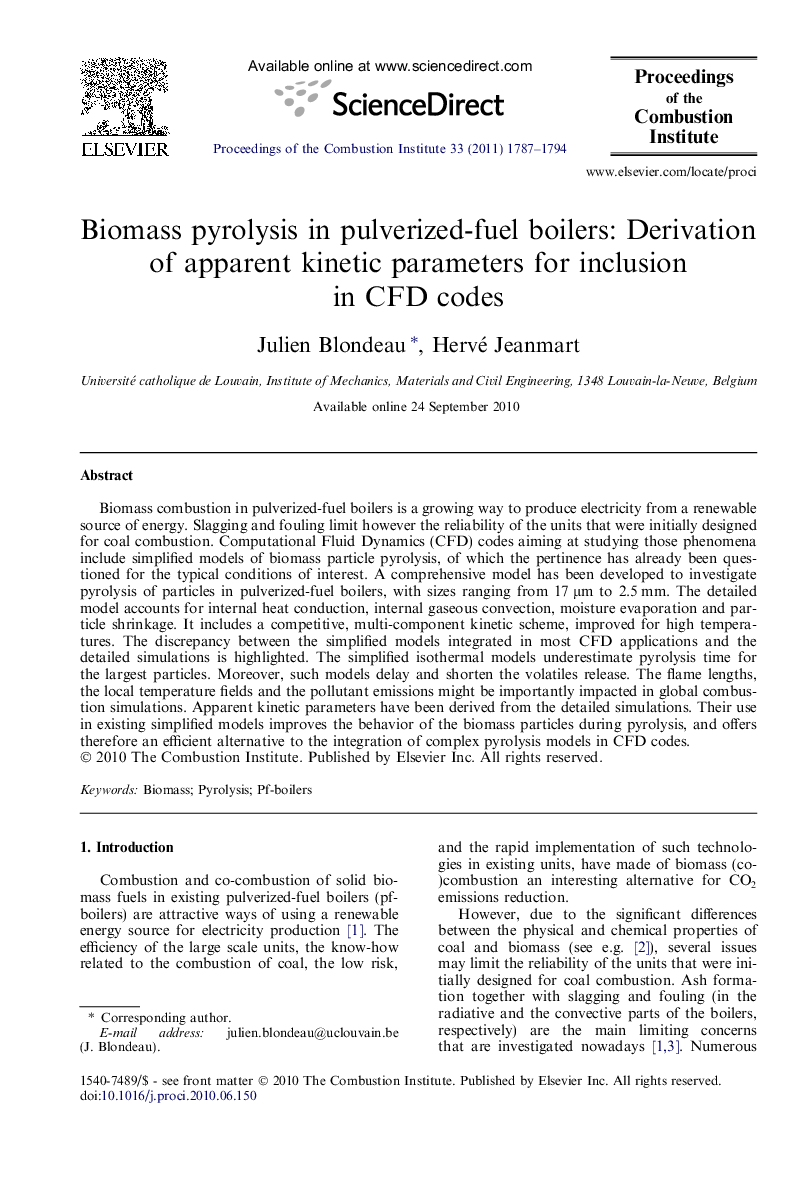| کد مقاله | کد نشریه | سال انتشار | مقاله انگلیسی | نسخه تمام متن |
|---|---|---|---|---|
| 240620 | 1427924 | 2011 | 8 صفحه PDF | دانلود رایگان |

Biomass combustion in pulverized-fuel boilers is a growing way to produce electricity from a renewable source of energy. Slagging and fouling limit however the reliability of the units that were initially designed for coal combustion. Computational Fluid Dynamics (CFD) codes aiming at studying those phenomena include simplified models of biomass particle pyrolysis, of which the pertinence has already been questioned for the typical conditions of interest. A comprehensive model has been developed to investigate pyrolysis of particles in pulverized-fuel boilers, with sizes ranging from 17 μm to 2.5 mm. The detailed model accounts for internal heat conduction, internal gaseous convection, moisture evaporation and particle shrinkage. It includes a competitive, multi-component kinetic scheme, improved for high temperatures. The discrepancy between the simplified models integrated in most CFD applications and the detailed simulations is highlighted. The simplified isothermal models underestimate pyrolysis time for the largest particles. Moreover, such models delay and shorten the volatiles release. The flame lengths, the local temperature fields and the pollutant emissions might be importantly impacted in global combustion simulations. Apparent kinetic parameters have been derived from the detailed simulations. Their use in existing simplified models improves the behavior of the biomass particles during pyrolysis, and offers therefore an efficient alternative to the integration of complex pyrolysis models in CFD codes.
Journal: Proceedings of the Combustion Institute - Volume 33, Issue 2, 2011, Pages 1787–1794